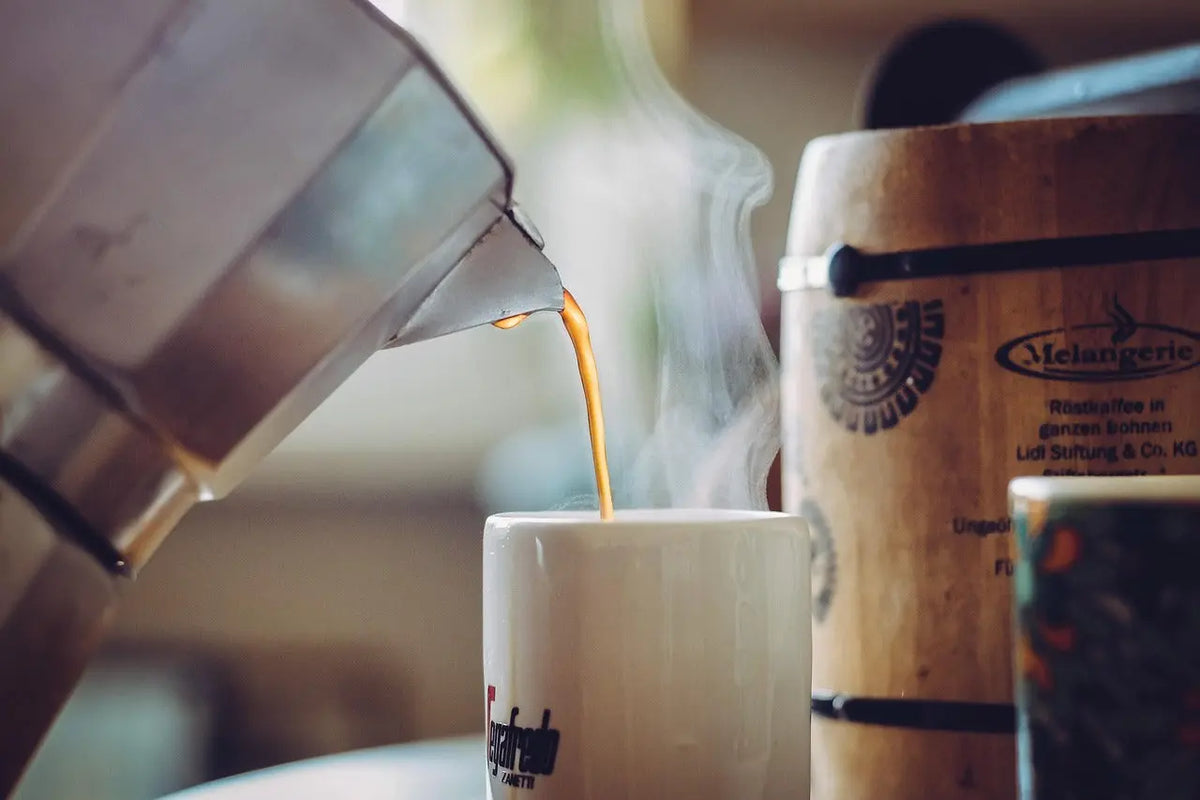
How Much Caffeine is Too Much Caffeine?
|
Time to read 3 min
This store requires javascript to be enabled for some features to work correctly.
Written by: Editorial Team
|
Time to read 3 min
For many of us, caffeine is a lifeline for burning the midnight oil, tight deadlines, or a poor night's sleep. However, too many caffeinated drinks, even during the day, can make our poor energy levels and fatigue worse, and create a cycle of bad sleep and have us reaching for the coffees again in our waking life.
Our most common forms of caffeine consumption are typically in the form of:
What constitutes a high caffeine level differs from person to person, and seasoned caffeine consumers tend to have a higher tolerance than those with a more casual intake.
The Mayo Clinic advises 400mg as the maximum level of caffeine before its consumption becomes detrimental to your health.
In other words, this is:
Coffee shop coffees are often higher in caffeine than those brewed at home. Other drinks not made at home, such as lemonades, teas, fruit juices, and alcoholic beverages served in restaurants, sometimes contain an unusually high caffeine dose.
Typical symptoms include:
Caffeine overuse is not the same as a caffeine overdose, which creates symptoms such as (but not limited to):
Serious health symptoms such as these require professional, immediate medical attention.
Verywell Health recommends having your last caffeinated beverage around six hours before bedtime - for example, if you go to bed at midnight, you should have your final cup of coffee at six.
However, this isn't one size fits all, and others should cut out caffeine slightly earlier, preferably by dinner or when they no longer require energy for work or similar activities that demand your energy.
Although caffeine is natural, as it is typically derived from the coffee bean, other drinks have a steadier, organic response to the body when supplying it with energy. Ingredients such as vitamin D can boost energy levels without the crash associated with high caffeine intake.
These include:
400mg a day is the recommended maximum caffeine limit, according to health experts.
Most people should stop consuming caffeine approximately six hours before bed, or around dinner time when most people stop working for the day.
Those looking to cut down on their consumption should look to food and drinks with less synthetic, slower-releasing energy that will not cause them to crash or struggle to fall asleep at night.
No, most cola or carbonated drinks contain significantly less caffeine than a cup of coffee. To hit your daily caffeine limit, you'd have to drink ten cans of an average fizzy drink, whereas you'd have to drink four home-brewed coffees to hit 400mg of caffeine, based on averages.
Yes, many brands and types of chocolate contain caffeine, although it is miniscule in comparison to a caffeinated drink like coffee.
Yes, caffeine is natural, in that is a chemical compound found in plants such as coffee beans, tea leaves, etc. However, we often do not consider it to be natural energy in our consumption of it, for example, when comparing a cup of coffee to a glass of orange juice.
Caffeine is also technically a drug, as it is also synthesized in a laboratory when it appears in our food and drinks, helping to stimulate our minds and nervous systems.
The Myza Editorial Team
The Myza Editorial Team works together to create and curate The Sleep Journal, a series of blog posts designed to help our customers with frequently asked questions and curiosities regarding everything in the world of sleep, from sleeping positions to skin and hair care. We also provide regular shopping guides, interviews, and reviews to provide insight into our hand-picked brand collaborations and the benefits they have to offer.
Receive 10% off your first order when you subscribe to our newsletter





